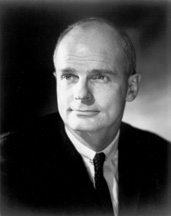The Likely and the Less Likely — Insights from the New Law School Poll
The Registered and the Likely – maybe that could be the name of a political soap opera, although I doubt it would attract high ratings in the general public. But it would attract high ratings among those involved in election campaigns and those eager to understand those campaigns and politics overall.
New results from the Marquette Law School Poll, released Wednesday, put the Registered and the Likely in the spotlight. Among 815 registered voters across the state, Republican Gov. Scott Walker led Democratic challenger Mary Burke 47.5 percent to 44.1 percent in the race for governor. But among 609 participants in the poll who were labeled likely to vote in November, Burke led Walker, 48.6 percent to 46.5 percent.
So who’s ahead, Walker or Burke? The best answer is that it’s too close to say – by both measures, the race is within the margin of error of the poll.

 He died more than nine years ago, but the spirit of the late U.S. Senator William Proxmire lives on in Wisconsin. The proof can be found in the latest Marquette Law School Poll, which suggests that someone like Proxmire, a political maverick if there ever was one, might play well in Wisconsin today. More on that in a moment, but first a couple of thoughts on what this latest survey tells us.
He died more than nine years ago, but the spirit of the late U.S. Senator William Proxmire lives on in Wisconsin. The proof can be found in the latest Marquette Law School Poll, which suggests that someone like Proxmire, a political maverick if there ever was one, might play well in Wisconsin today. More on that in a moment, but first a couple of thoughts on what this latest survey tells us.